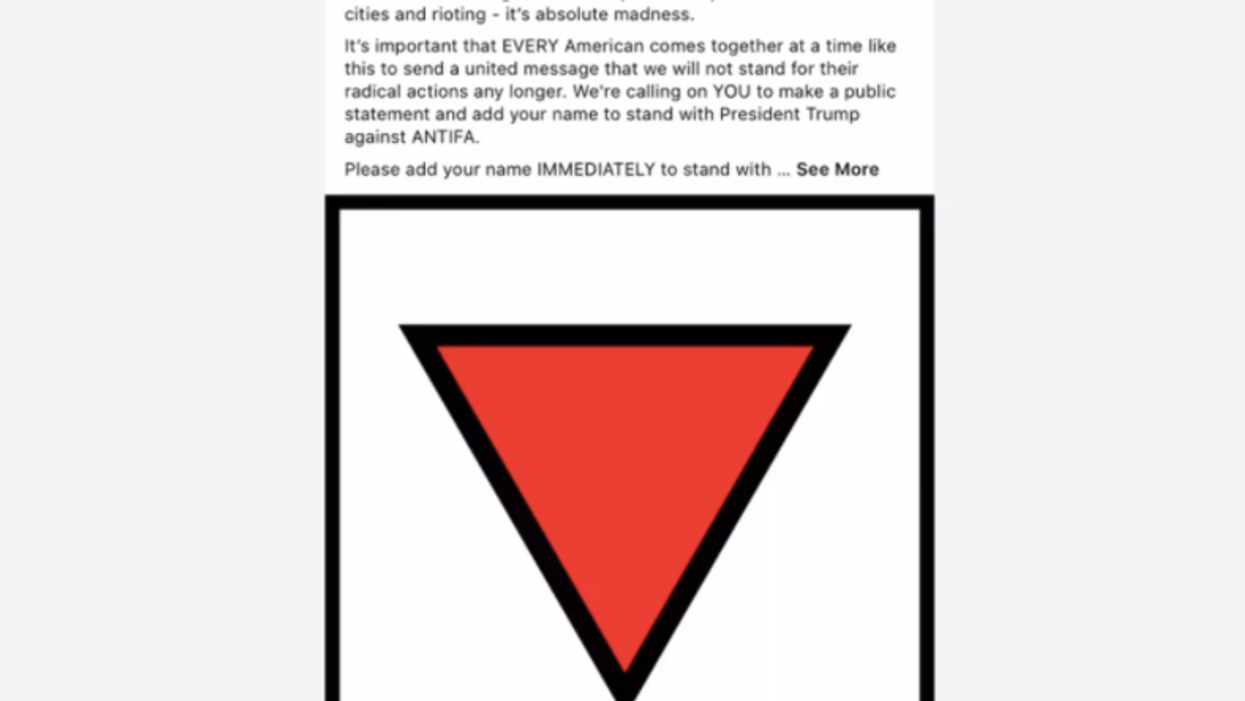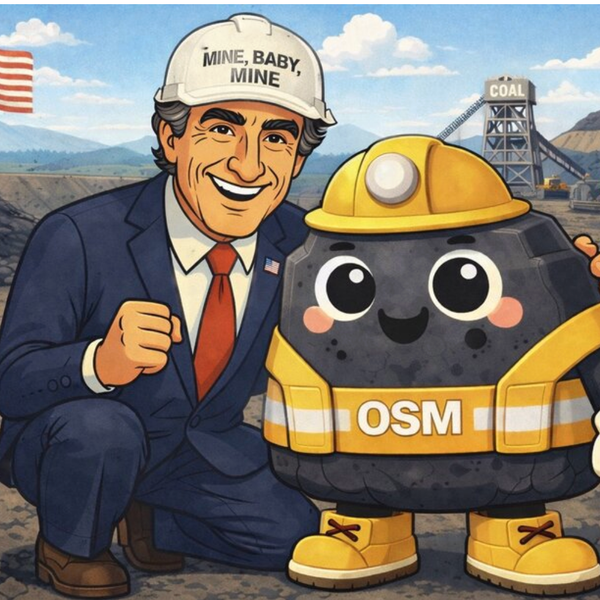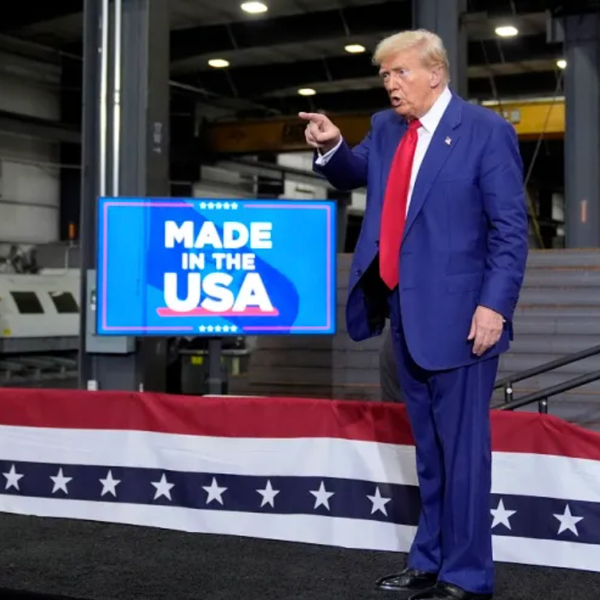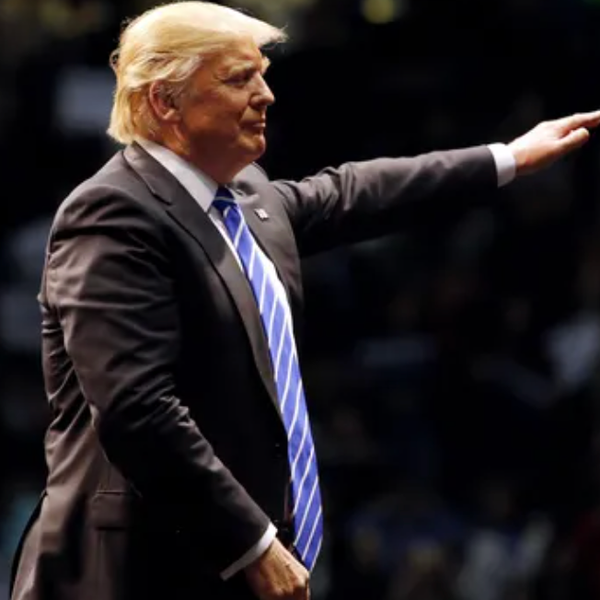New Report Embarrasses Trump Campaign Over 'Nazi Symbol' Display

Trump campaign tweet features inverted triangle used by Nazis to identify dissidents
Yet another controversy involving President Donald Trump and his allies came about this week when Facebook removed some campaign ads that used an infamous symbol from the 1930s: a red inverted triangle, which Adolf Hitler's Nazi regime used to identify political prisoners ranging from communists and liberals to members of opposition parties. Trump's campaign has, in essence, responded that it didn't use that symbol to promote Nazi ideology, but to smear Antifa. Nonetheless, Trump's critics have asserted that using that symbol in the first place was clueless and ignorant.
And according to Washington Post columnist Greg Sargent, a leaked internal document from the U.S. Department of Homeland Security makes Trump and his allies look even worse in this controversy.
"After Facebook removed the ads amid an outcry," Sargent explains, "the Trump campaign continued to defend use of the image — which was used by Nazis to identify political prisoners — by claiming it's a 'common Antifa symbol.' The suggestion, of course, is that the image is justified by the idea that it's associated with Antifa, so it's merely a warning of a continuing menace to the country. 'STOP ANTIFA,' the ads say, warning of 'dangerous MOBS of far-left groups' that are 'DESTROYING our cities.'"
Sargent adds, "Meanwhile, Trump and his top officials have continued to blame unrest and violence at protests on Antifa, to cast the violence more broadly as primarily left-wing in orientation. But the DHS document I obtained undercuts this series of claims."
The leaked DHS document, according to Sargent, shows that Antifa has not been a major source of violence at the recent "Justice for George Floyd" protests that have been taking place all over the United States.
"The document — which is an assessment of ongoing 'protest-related' threats to law enforcement dated June 17 — makes no mention at all of Antifa in its cataloging of those threats," Sargent notes. "The DHS document states that 'anarchist and anti-government extremists pose the most significant threat of targeted low-level, protest-related assaults against law enforcement.' It bases this assessment on 'the observed ideologies of recent attackers and the body of reporting of tactics noted by violent opportunists used over the last two weeks.' Thus, as of this week, 'anarchist and anti-government extremists' pose the most serious ongoing threat, according to Trump's own Homeland Security Department."
Although Trump and his allies have been smearing Antifa in order to terrorize the president's base of older white male voters, their assertions have demonstrated that they don't know much about Antifa (which stands for "anti-fascist"). First, Antifa is a movement, not an organization. Second, Trumpistas tend to lump Antifa and Black Bloc anarchists together even though they're separate movements. And Sargent, in his column, shows that he clearly knows the difference between Antifa and anarchists.
Sargent says of the DHS document, "Not only does this document not name Antifa, this description of generic 'anarchist extremists' does not describe what we've come to understand 'Antifa' to be. While there might be some loose overlap between Antifa and anarchists, Antifa isn't even a group — and adherents are characterized by specific resistance to perceived neo-fascist movements. Meanwhile, the DHS document defines 'anti-government extremists' as motivated by 'their belief that their liberties are being taken away by the perceived unconstitutional or otherwise illegitimate actions of government officials or law enforcement.' Obviously, that's not Antifa either."
Former DHS official Juliette Kayyem reviewed the document at Sargent's request and told him, "This document shows that the government itself does not view Antifa as a significant threat in the homeland. The document shows how absurd the Trump campaign's justification for using the symbol really is. It undercuts their defense."
Although the DHS document doesn't cite Antifa as a threat, it is specific about who it does consider a threat — and in addition to anarchists, it mentions white supremacists and the far-right Boogaloo movement (which is hoping to bring about a second civil war in the United States). In Northern California, Steven Carrillo — a man believed by Department of Justice officials to be associated with the Boogaloo movement — has been charged with murder following the shooting of a security officer. And the DHS document that Sargent and Kayyem reviewed specifically mentions Carrillo.Sargent writes, "The DHS document actually does cite the 'Boogaloo movement' as a threat in this context. It notes that Carrillo is likely associated with it, defining it as 'a term used by some violent extremists from a variety of movements who seek to incite a race war or the collapse of society.'"
Sargent concludes his column by noting that the DHS document warns of "the possibility of more attacks on law enforcement" and quoting a former DHS official who told him that making misleading claims about Antifa does a disservice to law enforcement.
The official told Sargent, "Attributing the risk to one group (or mischaracterizing its structure) is dangerous, because it misses the holistic nature of the problem, excludes those that do present a danger and ultimately, puts law enforcement at increased risk."








